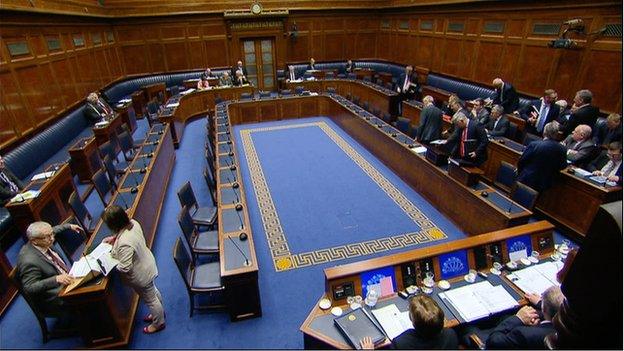Same-sex marriage: DUP accuses Slugger messenger of point scoring
- Published
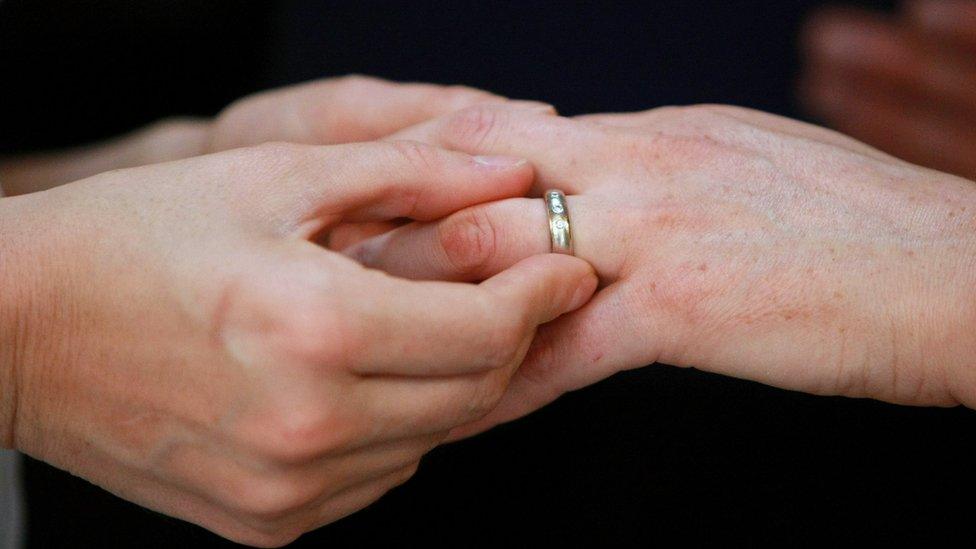
A majority of MLAs voted in favour of same-sex marriage for the first time on Monday, but the motion fell due to a DUP petition of concern
The DUP has accused those who published comments by one of their MLAs about same-sex marriage made during a private online conversation of attempting to "score party political points".
The website, Slugger O'Toole, published messages from DUP MLA Pam Cameron.
She said petitions of concern (poc), like the one used by the party on Monday's same-sex marriage vote, were "signed in advance" by MLAs.
This was so that the party "can use (them) strategically", she said.
"We are not asked to sign on issue," the message added.
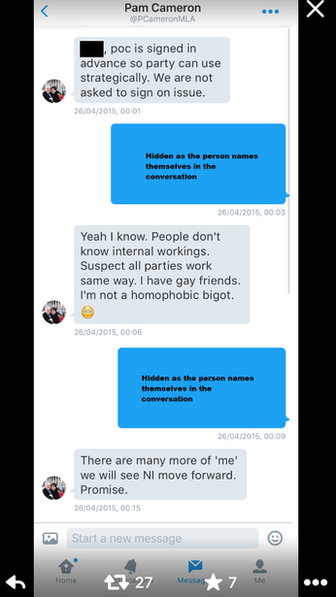
This image appeared on the Slugger O'Toole website
Ms Cameron, an MLA for South Antrim, said she suspected all the Stormont parties worked in the same way.
On the issue of same-sex marriage, she said: "I have gay friends. I'm not a homophobic bigot.
"There are many more of 'me' we will see NI move forward. Promise".
The Slugger O'Toole report, which later disappeared from the website, did not make clear the identity of the person with whom the MLA had been exchanging messages
However, DUP sources claim it was someone connected to the Alliance Party.
The DUP said the private direct message had "been released by someone who has chosen to conceal not only their identity, but their portion of the conversation".
The party said the comments had "a date stamp from over six months ago", making them of little relevance to Monday's debate.
The DUP pointed out that all their MLAs voted in the same way as they had done on four previous occasions and "perhaps those who changed their position today may wish to explain whether this reflects any pressure applied from within their own party."

What is a petition of concern?
The measure was designed as a way to safeguard minority rights in Northern Ireland's power-sharing assembly.
If a petition of concern is presented to the assembly speaker, any motion or amendment will need cross-community support.
In such cases, a vote on proposed legislation will only pass if supported by a weighted majority (60%) of members voting, including at least 40% of each of the nationalist and unionist designations present and voting.
Effectively this means that, provided enough MLAs from a particular community agree, that community can exercise a veto over the assembly's decisions.
- Published2 November 2015
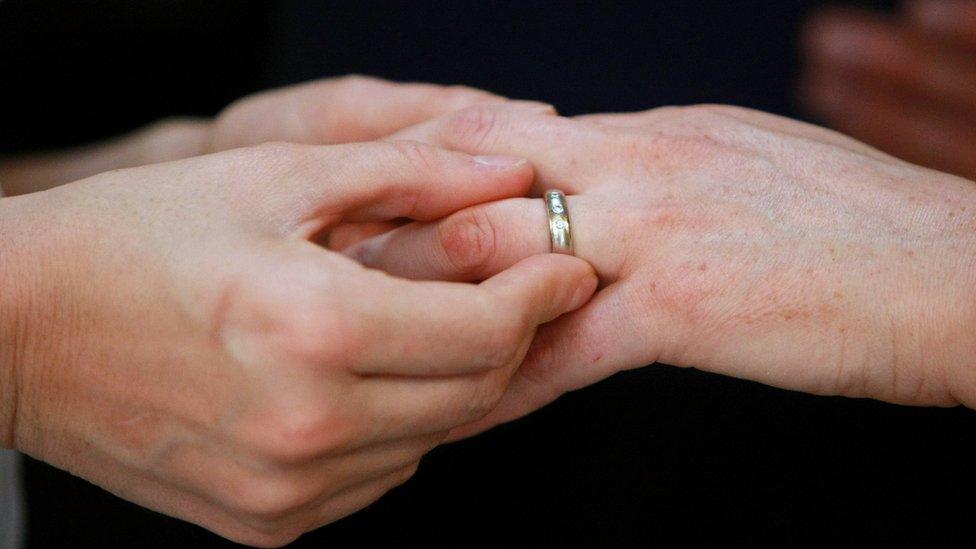
- Published26 June 2015
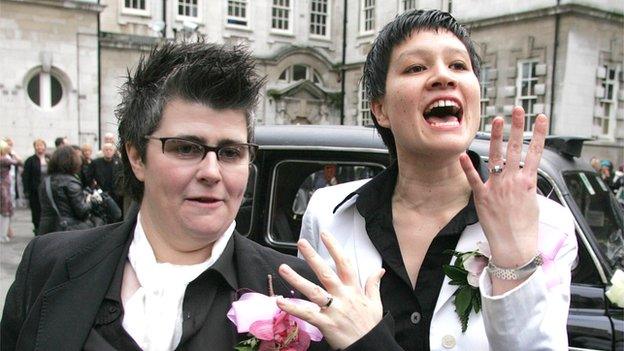
- Published15 June 2015

- Published13 June 2015

- Published23 May 2015

- Published27 April 2015
